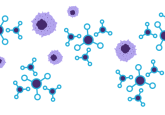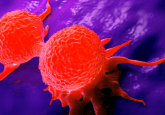Novel liquid biopsy test enhances early cancer detection with high accuracy

An innovative liquid biopsy test has been developed to detect early signs of tumor development, achieving higher accuracy than traditional methods.
Researchers from the University of Chicago (IL, USA) have developed a novel liquid biopsy test to detect the early stages of cancer. The team built upon the methodology of traditional liquid biopsies, only instead of relying on DNA, they innovated the technique with RNA. This is the first study to demonstrate the potential of RNA modifications as biomarkers for cancer detection.
Liquid biopsy offers a non-invasive approach over traditional tissue biopsies, where tissue removal is necessary to detect and monitor cancer progression. Through a simple blood draw, liquid biopsies detect mutations or modification changes in cell-free DNA (cfDNA) — fragments of DNA that are released into the bloodstream when tumor cells die and disintegrate. However, during the early stages of cancer, when the tumor cells are developing, cfDNA levels are too low to detect, limiting the accuracy of liquid biopsies for early stages of disease.
To address the limitations of existing cancer detection methods, the researchers turned their focus to RNA, analyzing its genetic activity rather than DNA. RNA plays a crucial role in cell function, carrying out genetic instructions from DNA that are then translated to produce proteins cells need to function. The researchers aimed to detect genetic RNA activity as early as possible in tumor development, rather than during cell death, when significant levels of cfDNA are released. However, simply measuring RNA abundance is not always reliable, as expression levels can vary widely depending on sample timing and preparation.
You may also be interested in:
- Biomarkers for Oncology: an Interview with Jialu Liu
- Accelerating the Clinical Adoption of Allogeneic Cell Therapies
- Breakthrough Blood Test Detects Deadly Brain Cancers in just 60 minutes
To overcome this, they shifted their focus to measuring RNA modifications, which remain largely stable regardless of RNA copy numbers. By analyzing the modifications of RNA in blood samples, they hoped to establish a more sensitive biomarker for early cancer detection.
The researchers tested their technique on blood samples from colorectal cancer patients and made a surprising discovery: not only could they detect modifications in cfRNA from human tumor cells, but they were also able to detect RNA from gut microbes.
“We found that RNA released from microbes has substantial differences between cancer patients versus healthy individuals,” said Senior Author Chaun He. “In the gut when you have a tumor growing, the nearby microbiome must be reshaped in response to that inflammation. That affects the nearby microbes.”
By analyzing microbial RNA modifications, the researchers were able to detect possible cancerous activity much earlier compared to methods that relied on cfDNA. This was because microbes have a much higher turnover rate than human cells, resulting in more frequent release of cfRNA into the bloodstream.
The RNA modification-based approach demonstrated an overall diagnostic accuracy of 95%, significantly outperforming currently commercial tests that measure DNA or RNA in stool samples, which typically show less than 50% accuracy for early-stage cancer detection.
“This is the first time RNA modifications have been used as a potential biomarker for cancer, and it looks to be much more reliable and sensitive compared to RNA abundance,” said He. “Being able to detect the cancer at those early stages is unprecedented.”





